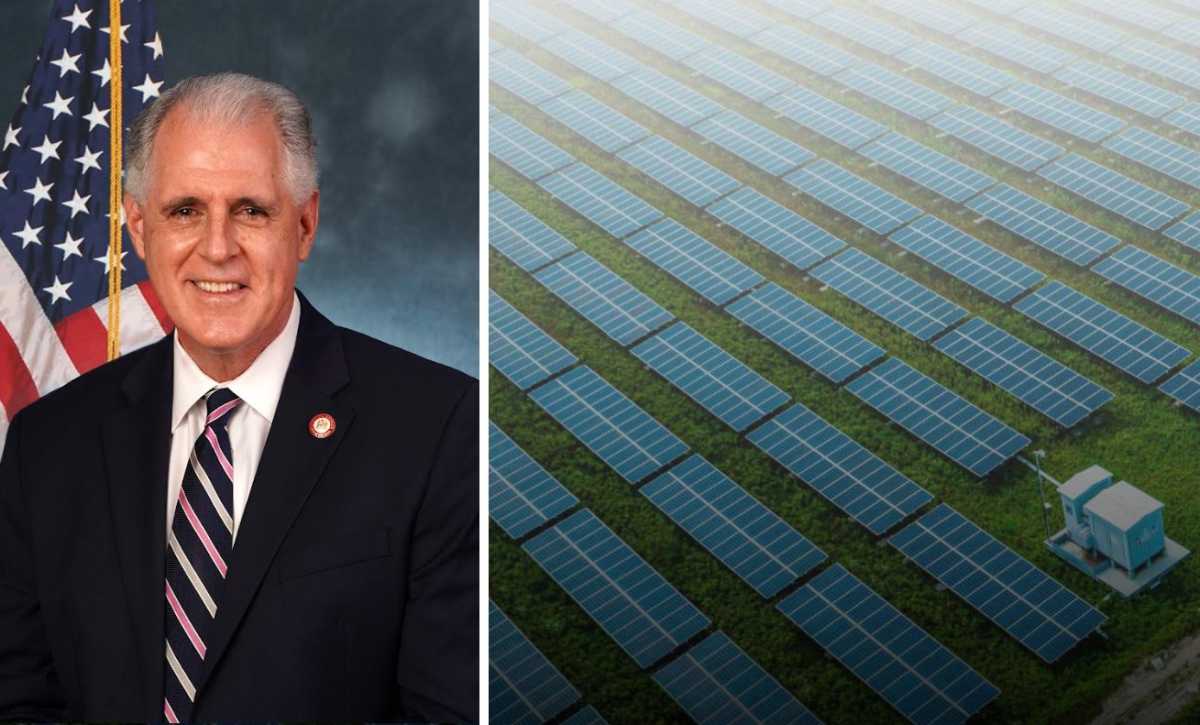The Trump administration’s proposed environmental budget cuts, staff reductions and program eliminations will have a chilling effect on New York City, experts agree, even if the precise scope of the impact remains unclear.
The city’s drinking water and air quality appear vulnerable, as do critical anti-pollution efforts in local waters and beaches and more.
“No matter where the cards fall, this won’t benefit our region,” predicted Sean Dixon, a staff attorney for Riverkeeper, a non-profit dedicated to protecting the Hudson River, its tributaries and NYC’s watersheds.
A budget proposal from the Office of Management and Budget, released Thursday, includes a $2.6 billion or 31 percent cut to the U.S Environmental Protection Agency’s budget. It also proposes to cut the EPA’s staff by 3,200 positions and eliminate more than 50 EPA programs.
The EPA’s website has been changed to say that the agency’s mission is no longer the development of “scientific and technological foundations to achieve clean water,” but “economically and technologically achievable performance standards.”
Trump’s appointee to head the EPA, Scott Pruitt, has said he does not believe human activity is a primary contributor to global warming and has promised “a new day of freedom” as “we roll back the regulatory state.”
Among the “potentially serious implications” for NYC, according to the recently departed regional EPA administrator for the city (and elsewhere) Judith Enck, would be a risk to the safety of drinking water.
“New York (City) is unique in that not all our drinking water is filtered. It’s a real wonder,” explained Enck, a Barack Obama appointee who resigned her post on Jan. 18 and is now a visiting scholar at Pace University’s Haub Law School.
The reason New Yorkers can drink unfiltered water from the Catskills is “because there is a real effort to protect it at the source. EPA staff are very diligent about looking at (water) test results” to make sure parasites such as cryptosporidium and harmful bacteria and pathogens do not raise to unsafe levels and sicken the people who drink it.
Cutting staff that performs such jobs — as well as EPA police who patrol reservoirs in Westchester and the Catskills — will reduce protections, she said.
Congress appropriates money for upgrades that flows to the state and then the city to beef up water infrastructure that, in NYC, “is really old and really vulnerable to problems,” she said.
Our metropolis “has a massive problem with sewage discharges into its waterways,” such as the Hudson and East rivers, the Gowanus Canal and New York Harbor, after rainfalls, Enck continued.
EPA staff typically responds — as hundreds of employees did after Superstorm Sandy — to help damaged sewer plants get back online, but the cuts “would affect the EPA’s ability to respond to emergencies,” she said.
Mayoral spokesman Raul Contreras said that while “we still think the EPA is necessary,” proposed cuts “will not impact NYC’s high quality water supply,” because the city Department of Environmental Protection collects $3.8 billion a year in water and sewer charges that fully funds both capital programs and water quality assurance programs.
Gov. Andrew Cuomo announced last week that the state was prepared to invest $60 million to upgrade drinking water and wastewater systems across the state.
An EPA spokesperson said the agency wouldn’t comment “at this early stage” in the budget process.
But other environmental watchdogs argued the cuts to the EPA would indeed be acutely felt. None of the five boroughs currently meet federal air quality standards for ozone levels, noted Joel Kupferman, director of the New York Environmental Law and Justice Project.
After cutbacks, “our air will be even worse,” he said.
The agency regulates emissions from coal-fired power plants, cruise ships and some manufacturing plants. Pruitt has announced his intention to roll back the EPA’s signature regulation under Barack Obama, the Clean Power Plan, which slashes carbon pollution from power plants, sets national standards and increases energy production from clean, renewable sources.
“All those scrubbers in the smokestack take a lot of maintenance and there’s always a push to lessen standards by industry,” and states caving to draw economic investment, Kupferman said.
If the cuts occur, “there will be less enforcement of the standards we have. All those coal-fired power plants blow west to east,” polluting the air of New York City and upping the risk of respiratory problems in people who are here, Kupferman explained. The Bronx, for example, suffers from asthma rates that are among the highest in the United States.
Undermining the Clean Power Plan will leave the city “hotter in the summer. And you’ll have to contend with more flooding on the shores,” as sea levels rise and oceans get warmer, Enck added.
The agency is also useful because “the EPA can take over jurisdiction and set the tone,” when localities are lax about enforcement or grant exemptions to developers who pollute the air with harmful particulates, asbestos and lead during demolitions and building, Kupferman explained. “Now the fox is gone,” he lamented.
One program targeted for total elimination is the Beaches Environmental Assessment and Coastal Health (BEACH) Act, which spreads $10 million to states, territories and tribes to make sure coastal and certain other waters are safe for swimming, Dixon noted.
Enck said she hears from many former colleagues who are “really upset to see decades of work” potentially vanish.
“The entire EPA budget for the whole country is only $8.14 billion and they’re talking about cutting that budget while increasing the military’s budget, which is more than $600 billion annually. Cutting the EPA budget for fiscal reasons is not going to save that much,” and may well wind up costing more, in terms of the catastrophes that could result, Enck said.
Senate Republicans have argued that the Endangered Species Act, which helped save the bald eagle, gray wolves, and other species from extinction, is ineffective and hampers business and land development. They would like it overhauled and made more friendly to development interests.
Until recently, New York State was all but devoid of bald eagles (de-listed as endangered in 2007), noted New York State Nature Conservancy director Bill Ulfelder. “We now have the first pair of bald eagles nesting in NYC,” on Staten Island, and at least 200 breeding pairs state-wide, he said.
Peregrine falcons — the fastest animal on earth — were de-listed in 1999 and have also had an emphatic rebound in the state. Whales are even glimpsed occasionally off waters of NYC. But an “attitude shift” that favors “land development versus habitat conservation for endangered species” and which is likely to beget more pollution will put the wondrous animals in our midst at risk, Ulfelder said.
Wildlife is not only threatened by the gutting of the Endangered Species Act, but also by any undermining of environment al protections that would leave the water and air less clean.
“The Endangered Species Act, the Clean Water Act, the Clean Air Act and others represent fundamental safeguards to our nation’s health,” not just for people, but for animals, Ulfelder said.





































